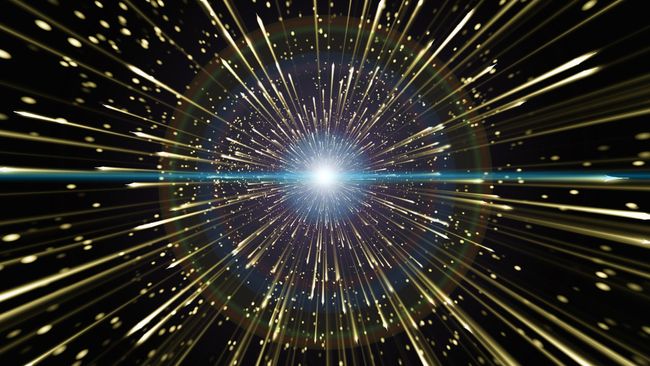'Hawking radiation' may be erasing black holes. Watching it happen could reveal new physics. [View all]
By Andrey Feldman
published November 6, 2024
Primordial black holes may be exploding throughout the universe. If we can catch them in the act, it could pave the way to new physics, a study suggests.

An abstract illustration showing streaks of light radiating from a central point
If primordial black holes exist, they may be exploding throughout the cosmos — leaving telltale signals that could reveal new physics. (Image credit: Geralt via Pixabay)
Primordial black holes (PBHs), which are thought to have formed right after the Big Bang, may be heating up and exploding throughout the universe.
These black hole explosions, powered by Hawking radiation — a quantum process where black holes generate particles from the vacuum due to their intense gravitational fields — could be detected by upcoming telescopes, physicists suggest in a new study. And, once spotted, these exotic explosions could reveal whether our universe contains previously undiscovered particles.
Black holes from the dawn of time
There's already plenty of evidence for the existence of black holes ranging from a few times the mass of the sun to billions of times the sun's mass. These black holes have been directly detected through the gravitational waves they emit during the mergers that help them grow. Some black holes, such as the Milky Way's Sagittarius A*, have even been directly imaged as "shadows" by the Event Horizon Telescope.
If they exist, these compact objects could provide a natural explanation for dark matter, the invisible entity that makes up about 85% of the matter in the universe. However, PBHs remain elusive. Their theoretical existence is supported by a combination of cosmological models, but they have yet to be directly observed.
More:
https://www.livescience.com/physics-mathematics/particle-physics/hawking-radiation-may-be-erasing-black-holes-watching-it-happen-could-reveal-new-physics
